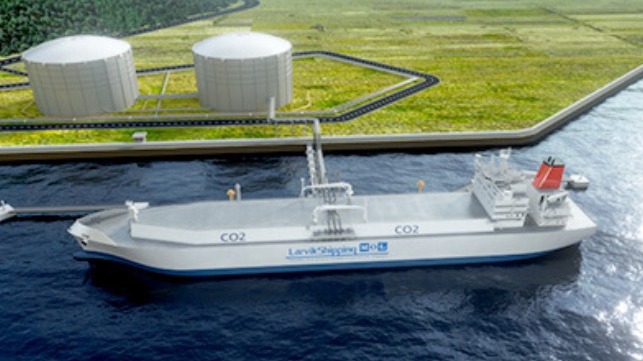Concept Study for Liquefied CO2 Carriers by MOL and Mitsubishi

Mitsui O.S.K. Lines and Mitsubishi Shipbuilding Co. announced that they have completed a concept study exploring multiple hull forms for liquefied CO2 carriers. The companies believe that the vessels can potentially become a key element in the LCO2 shipping market. The transportation of CO2 either for reuse in industry or to storage is a key part of the global strategy to reduce carbon emissions.
The companies believe thatLCO2 carriers will play an important role in the Carbon dioxide Capture Utilization and Storage (CCUS) value chain.
To meet future demand for LCO2 transportation, MOL and Mitsubishi undertook a concept study of the multi-hull forms. They were exploring which were considered the most effective and practical. They explored the use of a total cargo tank capacity up to around 50 000 m3. To create flexibility to cope with the volume of cargo transported, they designed with consideration of different tank pressure settings.

that matters most
Get the latest maritime news delivered to your inbox daily.
“In order to flexibly respond to customer needs based on the entire value chain, we will make rapid efforts to realize a larger LCO2 carrier,” the companies said, noting the high degree of difficulty to develop a variety of ship types. In addition, MOL will contribute to the realization of a low-carbon and decarbonized society by overcoming the challenges faced in the transportation of LCO2 and accumulating operational knowledge.
MOL entered the business of transporting liquefied carbon dioxide by sea in March 2021, when it invested in Norway’s Larvik Shipping, which has managed industrial LCO2 carriers in Europe for over 30 years. By combining its accumulated experience in safe vessel operation and cargo handling with Larvik's know-how and solid track record, MOL says it will keep examining ways to expand the scale of LCO2 carriers and contribute to the further worldwide development of the LCO2 ocean transport business.
